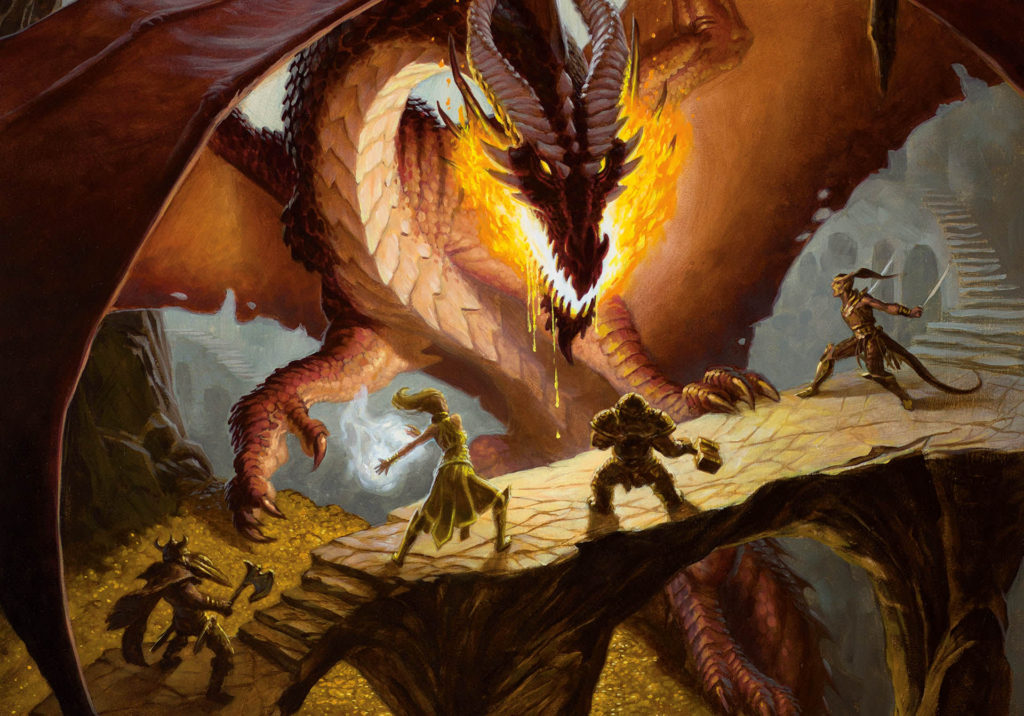As a Game Master with over thirty years of experience running role-playing games, I often introduce new players to the joys of tabletop role-playing games. Thus, I tend to run across similar problems when a new player encounters a pen and paper-based gaming system for the first time. These problems most often consist of an overwhelming intimidation towards the complexity inherent in these systems.
Guest Writer: B. Caleb Goodson
“Why is there so much math? This looks complicated?”
“How do I make a good character? I don’t want to make a mistake.”
“There is so much here! What should I choose?”
These questions are saying something very simple, “I don’t understand, and I think I look stupid. Help me!”
This is why Dungeons and Dragons 5th Edition is a very good introductory RPG, and why I call it Baby’s First RPG. This is not making fun of the system, not at all! It is an acknowledgement of how streamlined it is, and thus a very good first system for novice Players and Game Masters to cut their gaming teeth on.
The way the core rulebooks are designed is to clearly take novice tabletop gamers by the hand and lead them into an understanding into how tabletop gaming works. Each term is defined, so that once a potential new gamer finishes reading the core book, he or she will have all the understanding they need to play their first game of Dungeons and Dragons.
The system is very new player friendly. The base classes in the Player’s Handbook are well-defined, with a great explanation of the role each character class possesses. A player will inherently know what his or her playstyle will be, even if he or she cannot properly define it. A good explanation of what each class is all about is essential to the new play experience. The 5th Edition book delivers this very well.
Players also have access to good role-playing hooks in the form of backgrounds. The system itself allows you to create a character without having to think too much about your own roleplaying motivations. They are, instead, built-in from the ground up. This makes role-playing much less intimidating, as a new player can just look at a character sheet, glance at his or her chosen background and alignment, and then answer the question:
“What would a person with this background and moral outlook do in this situation?”
The only downside to this, in my opinion, is the loss of the customizability that other role-playing systems offer. However, this is a necessary sacrifice in the name of making the game new player friendly. I often encounter analysis paralysis in new players who encounter too many options. Thus, fewer choices, and all containing okay to good options, creates a positive play experience. This is needed for player retention. (Along with a good group and a good Game Master, but that is a separate topic.)
This is a massive advantage over the previous edition (4th Edition), which was a bloated mess of complicated math on top of complicated math. The attempt of 4th Edition to streamline and simplify the game was a noble attempt, but it resulted in an over-correction. This, in turn, made 4th Edition more complicated than 3.5 (Which had great customizability, but suffered from terrible rules bloat).
With all this in mind, if you are new to tabletop gaming in any way, you should probably try 5th Edition Dungeons and Dragons. I find it very easy to run, and an excellent first system. Thus, it truly is Baby’s First RPG.
And remember, Frontline Gaming sells gaming products at a discount, every day in their webcart!

